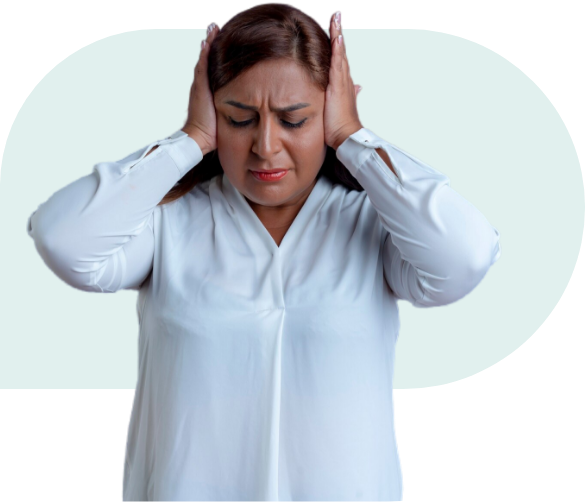- What is the overall cost of a Virtual Child/Adolescent ADHD Assessment?
No Description Cost Time 1 A virtual Child/Adolescent ADHD assessment
1. This includes a full report, including diagnosis and treatment plan.
2. The first free medication prescription.
3. A free Shared Care Agreement with your GP (if required).£1,245 60-90 Mins 2 Following diagnosis, medication titration involves follow-up consultations costing.
£150 - £325 per 15-minute session.
Titration can last between 8 and 12 weeks and potentially require multiple visits,
depending on your response. to the medication. Our goal is to complete this
process as quickly and safely as possible.£150 - £325 15 Mins 3 ADHD medication, being a controlled substance, requires a monthly prescription.
If the patient isn’t transferred to the NHS under a shared care agreement, there
will be an approximate monthly cost of £45 per repeat prescription.£45
per month4 According to the NICE guidelines, the treatment response for all ADHD drugs
should be reviewed annually at £590 per 30-minute session.
(This review includes a comprehensive assessment of clinical needs, benefits,
and side effects, taking into account the views of the patient and carers,
the effect of missed doses, planned dose reductions, and brief periods of no treatment.)£590
every 12 Months30 mins
Once you have subscribed to our secure portal at Harley Mind Care, you will have access for life. We will provide the following services.
No Type Patient Portal Lifetime benefits 1 Patient Portal You will have access to view and upload documents, billing activity, reports, and
Educational resources (see below)2 Automated Reminders We will send out automated reminders for appointments, questionnaires, and
12-monthly reviews.3 Educational Resources We will upload educational videos on managing ADHD and pamphlets to assist
you in things like monitoring your blood pressure and other health-related matters.4 Communications Portal, Email, Telephone, WhatsApp, Telegram and Messenger.

Harley Mind care Psychiatrists
Understanding Psychosis
Psychosis is a condition that affects the mind, resulting in a loss of contact with reality. It can manifest through hallucinations, delusions, and impaired thinking. At Harley Mind Care, we aim to provide detailed information and effective support for managing psychosis.
Common Symptoms of Psychosis
Symptoms of psychosis can include:
- Hallucinations: Hearing, seeing, or feeling things that are not there.
- Delusions: Strongly held false beliefs.
- Disorganised Thinking: Incoherent or illogical thoughts and speech.
- Abnormal Behaviour: Acting in ways that are out of character.
- Cognitive Impairment: Trouble with concentration, memory, and decision-making.
Recognising these symptoms early is crucial for effective treatment.
Causes of Psychosis
Psychosis can be caused by various factors, including:
Mental Illness
Conditions like schizophrenia or bipolar disorder.
Substance Use
Drugs and alcohol can trigger psychotic episodes.
Medical Conditions
Brain injuries, infections, or diseases.
Medical Conditions
Severe stress or traumatic events.
Genetics
Family history of psychotic disorders.
Understanding the root causes helps in developing an effective treatment plan.
Types of Psychotic Disorders
Psychosis can occur in various forms, such as:
Schizophrenia
Characterized by persistent psychosis and cognitive impairment.
Schizoaffective Disorder
Combination of mood disorder and psychotic symptoms.
Brief Psychotic Disorder
Short-term psychosis, often in response to stress.
Delusional Disorder
Dominated by delusions without other major symptoms.
Substance-Induced Psychosis
Triggered by drug or alcohol use.
Impact of Psychosis on Daily Life
Psychosis can significantly affect daily life, including:
- Difficulties maintaining relationships
- Challenges in work or school performance
- Social isolation
- Increased risk of self-harm or harm to others
Recognising these impacts is vital for seeking timely help and improving quality of life.
Diagnosis and Assessment
At Harley Mind Care, our diagnostic approach includes:
Clinical Interviews
Detailed discussions about symptoms and history.
Psychiatric Evaluations
To rule out underlying medical conditions.
Medical Tests
Comprehensive mental health assessments.
This thorough approach ensures a tailored treatment plan for each individual.
Treatment Options for Psychosis
Effective treatment for psychosis typically involves:
Medications
Antipsychotics and other prescribed medications.
Psychotherapy
Cognitive Behavioural Therapy (CBT) and supportive therapy.
Hospitalisation
In severe cases, short-term hospitalisation may be necessary.
Community Support
Access to social services and support groups.
Our team collaborates to create a comprehensive treatment plan tailored to individual needs.
Self-Help Strategies and Lifestyle Changes
In addition to professional treatment, consider:
- Medication Adherence: Following prescribed treatment plans.
- Stress Management: Techniques like mindfulness and relaxation.
- Healthy Living: Regular exercise, balanced diet, and adequate sleep.
- Social Support: Connecting with family, friends, or support groups.
These strategies can aid in managing symptoms and improving overall well-being.
When to Seek Professional Help
Seek professional help if:
- Psychosis interferes with daily life.
- Symptoms are severe or persistent.
- There is a risk of harm to self or others.
- Co-occurring substance abuse issues are present.
Early intervention is crucial for better outcomes and recovery.
Our Approach at Harley Mind Care
Harley Mind Care offers personalised and evidence-based treatments for psychosis. Our expert team works together to develop individualised treatment plans, ensuring comprehensive care in a supportive environment. We are committed to helping you manage psychosis and achieve mental stability and well-being.
